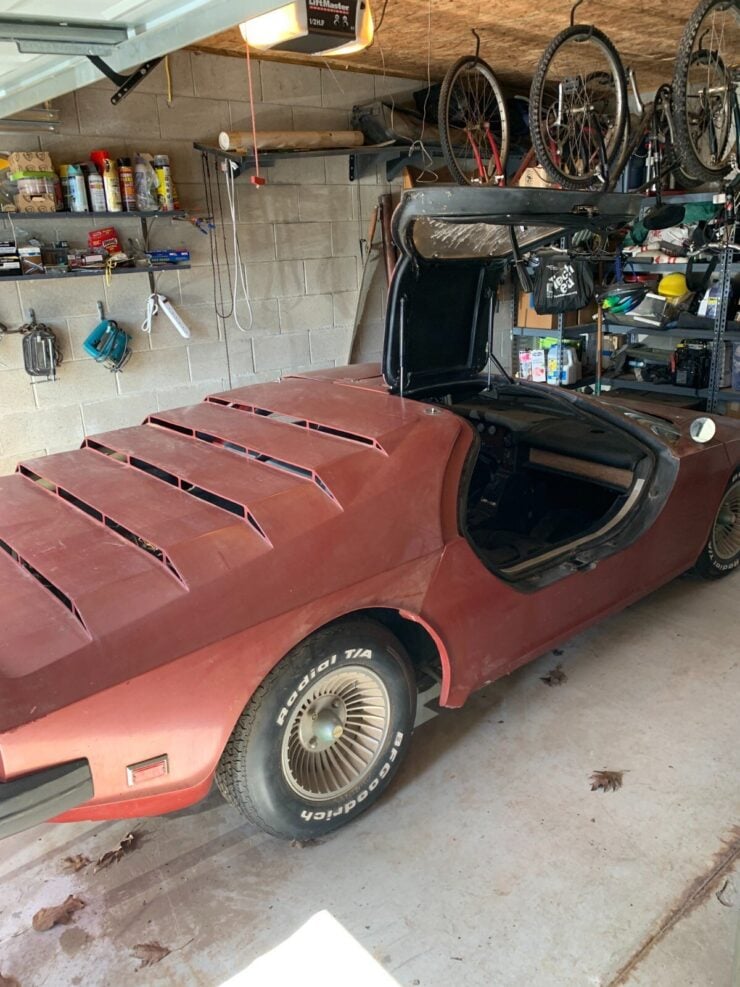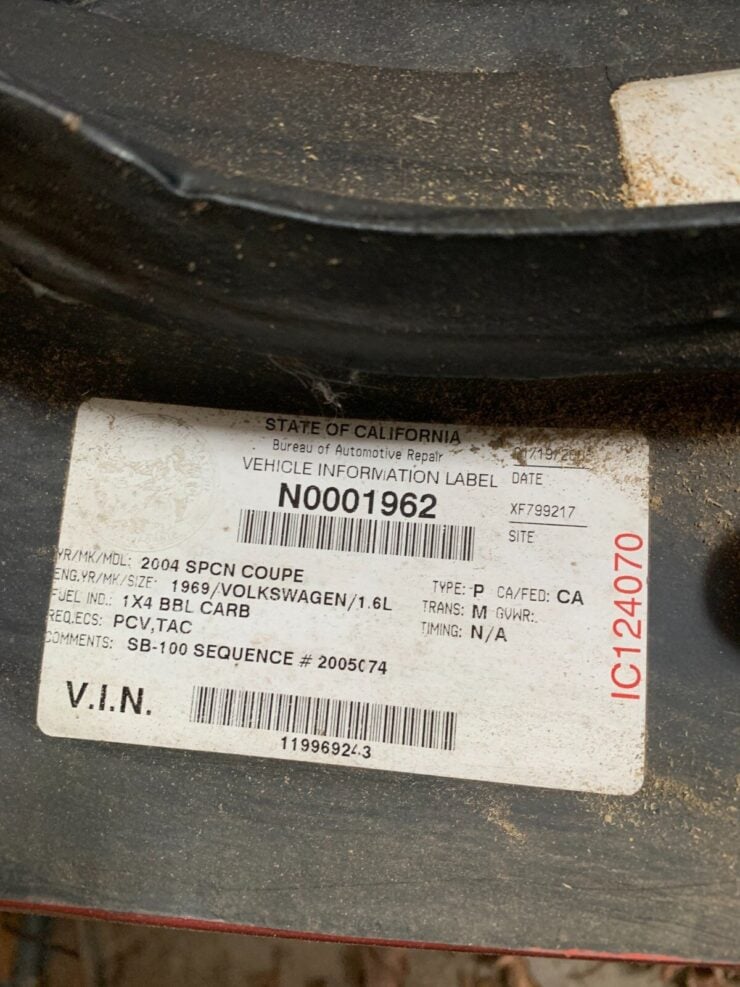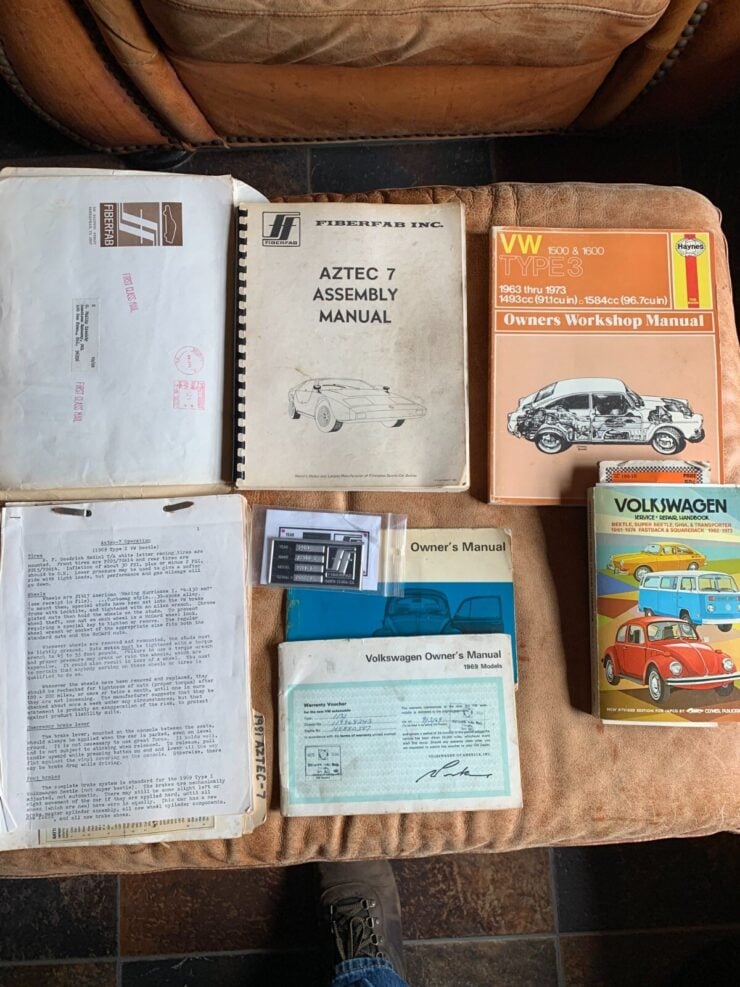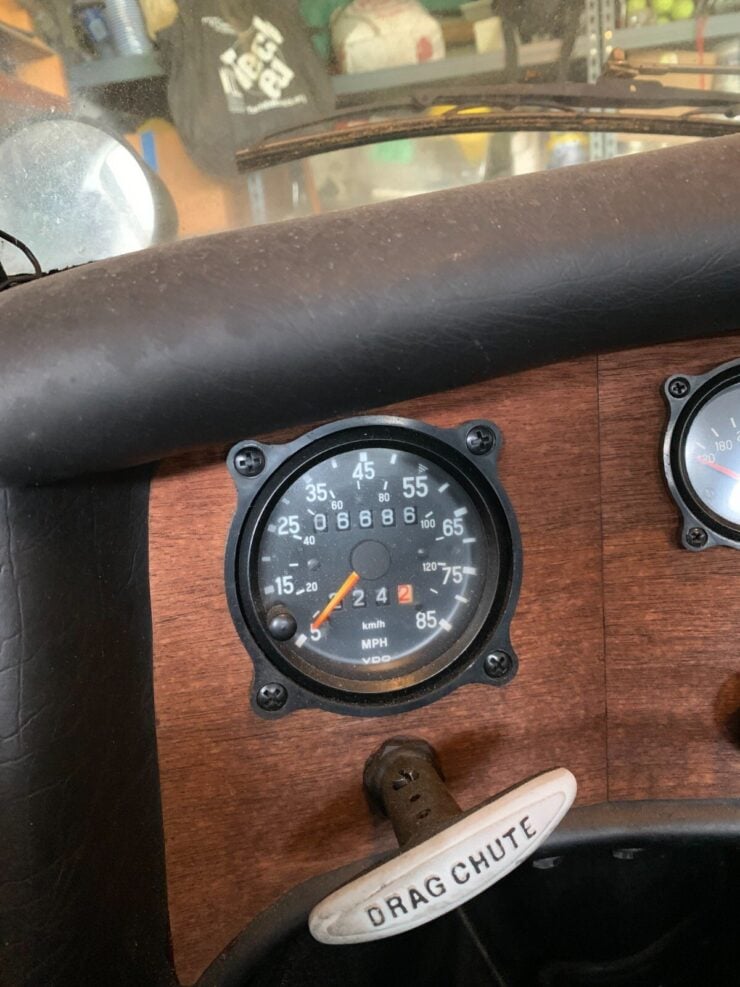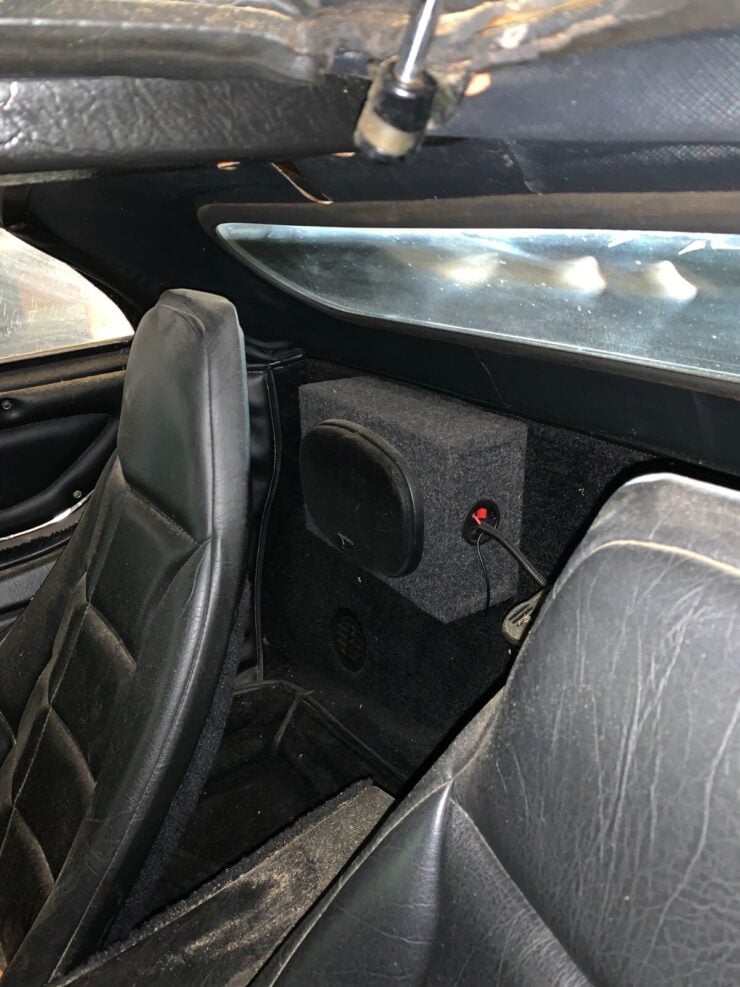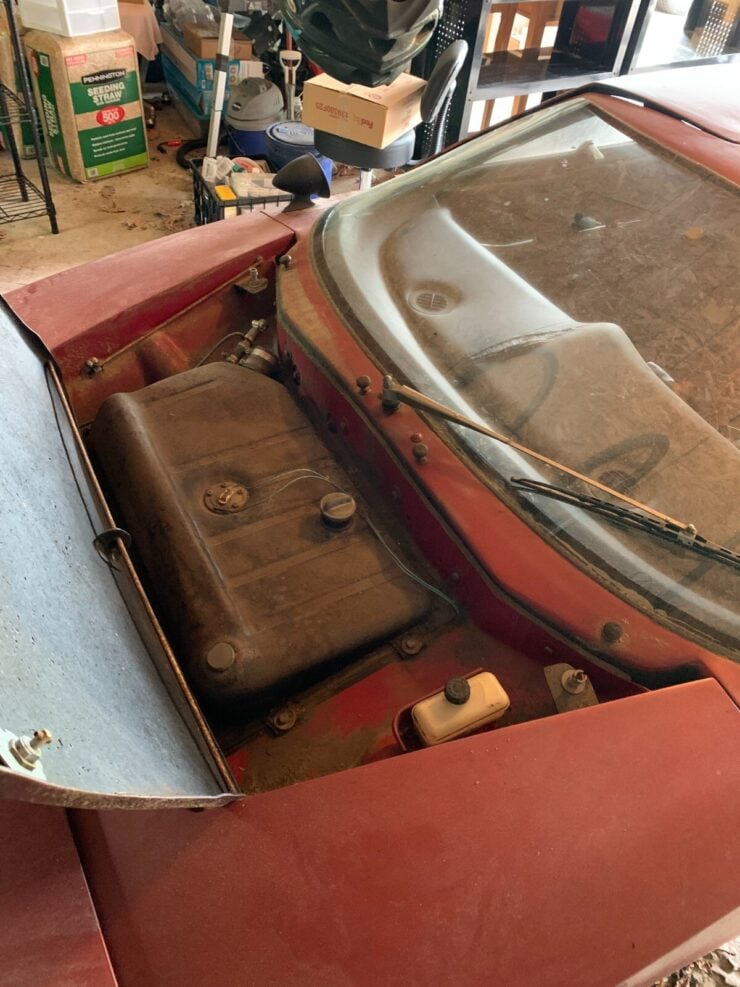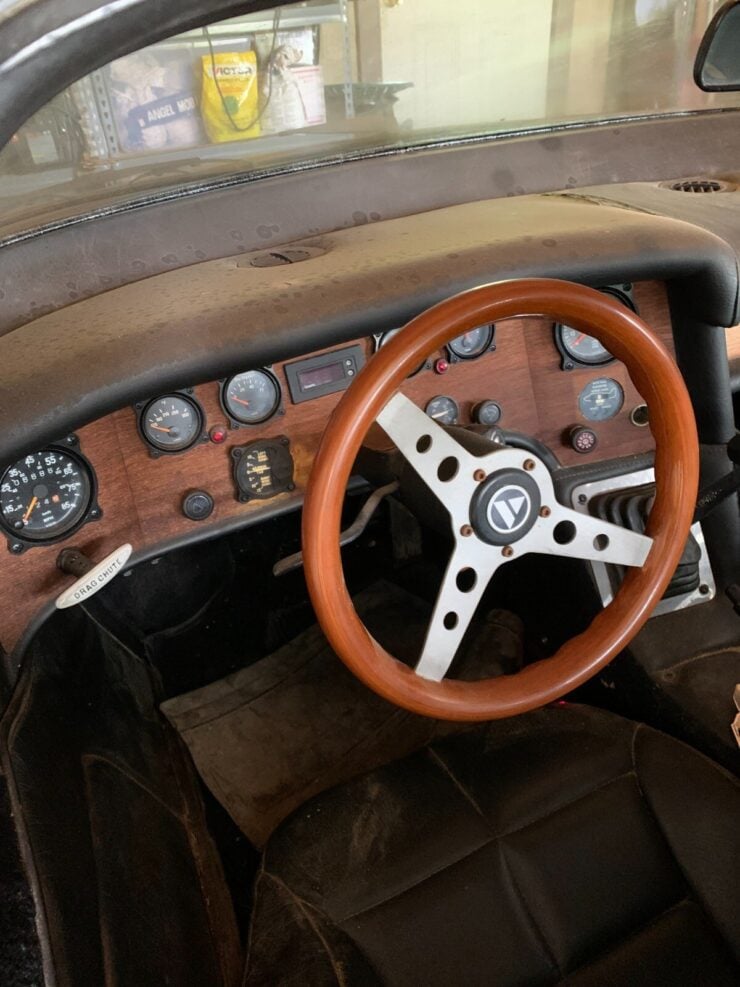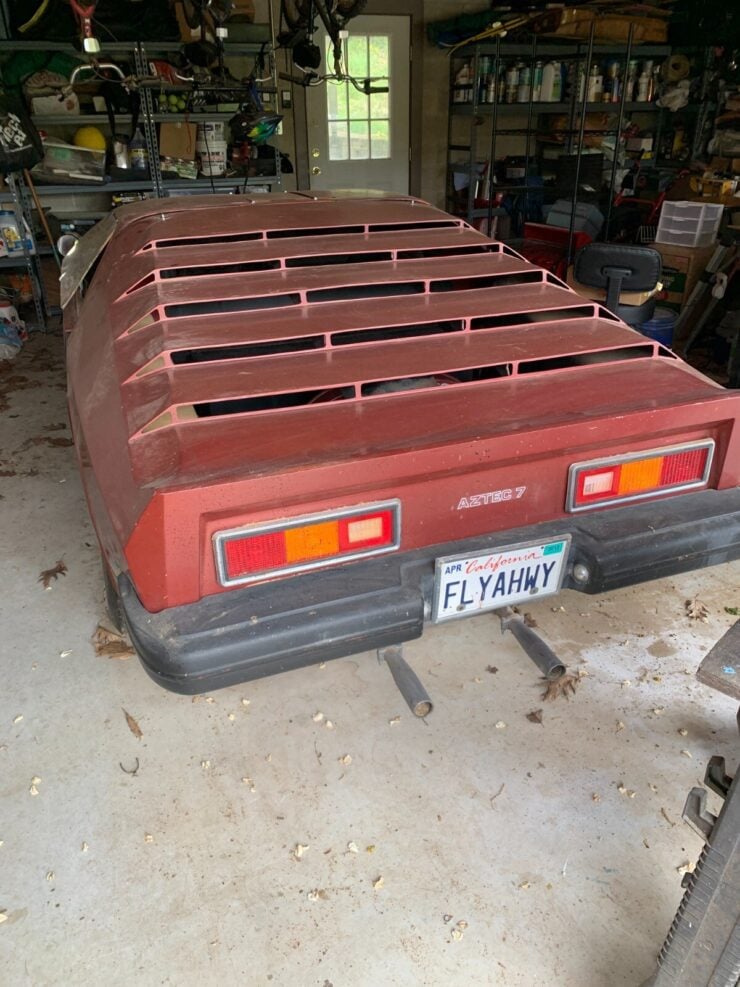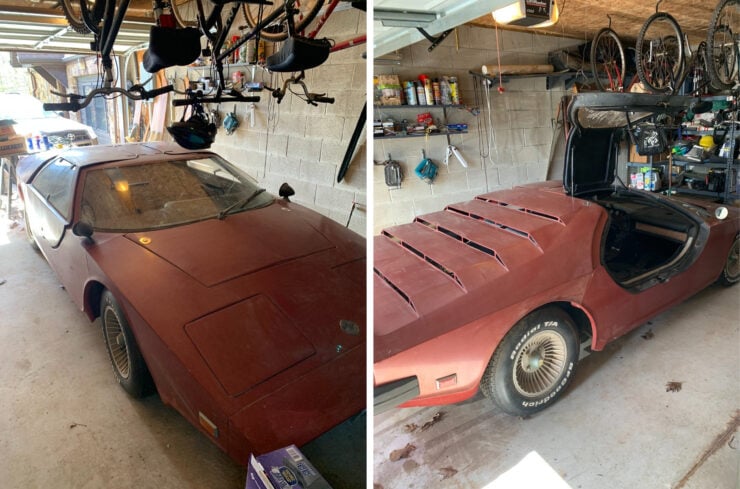This is a Fiberfab Aztec 7 that has remained under a layer of dust for 20 years and counting. It was last registered for the road in 2005 in California, and it’s now being sold on eBay in “as-is” condition with a clear California title.
The Aztec 7 was offered in the 1960s and 1970s as a kit designed to fit over a Volkswagen chassis – leaving the drivetrain, suspension, brakes, and steering in place. The design was inspired by (though not a 1:1 copy of) the Bertone Carabo Alfa Romeo concept car from 1968 designed by Marcello Gandini.
Fast Facts – The Fiberfab Aztec 7
- This Fiberfab Aztec 7, now for sale on eBay, has sat dormant for over two decades, last registered in California in 2005. Based on a 1969 VW Beetle chassis, it retains the stock VW drivetrain and suspension. Notably, it comes with a clear California title and a suite of unusual additions.
- Fiberfab introduced the Aztec 7 in the late 1960s, drawing styling inspiration from the Alfa Romeo Carabo concept car by Marcello Gandini. It was sold as a fiberglass kit designed to fit VW Type 1 floorpans, offering a futuristic wedge design, gullwing doors, and dramatic lines – despite its modest VW powerplant.
- This Aztec 7 includes custom features like American Racing wheels, a Hurst Indy shifter, Kenwood speakers, keyless entry, and even backup sensors. It reportedly underwent a significant rebuild in 2002 and includes quirky elements like aircraft gauges and a dashboard parachute handle installed by a previous owner.
- Fiberfab, founded in 1964, was a major player in the 1960s and 1970s kit car boom. Despite the murder conviction of its founder Bud Goodwin in 1967, the company continued under new leadership. The Aztec 7 remains one of its most iconic and distinctive designs, with around 400 kits believed to have been sold.
History Speedrun: Fiberfab Co.
Fiberfab was an American kit car manufacturer founded in 1964 by Warren “Bud” Goodwin, a former marketing executive with plenty of experience in the specialty car industry.
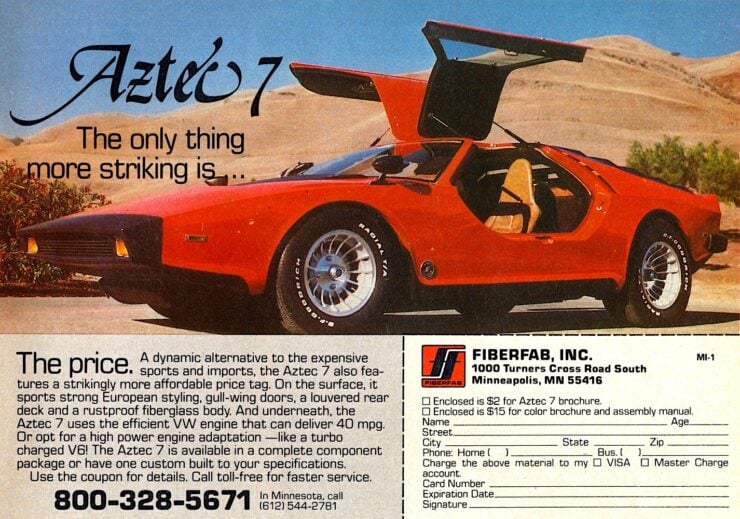

Based in Palo Alto, California, Fiberfab rose in popularity during the 1960s kit car boom, offering affordable fiberglass-bodied sports cars that could be built using common donor vehicles, most often the Volkswagen Beetle.
Fiberfab’s first major success was the Aztec GT, a sleek two-seat coupe designed to bolt onto a shortened VW floorpan. It was soon followed by the Fiberfab Jamaican, which was styled with clear influence from contemporary Italian exotics and was adaptable to a variety of chassis, including British sports cars like the Austin-Healey 3000.
Goodwin’s ambition and Fiberfab’s rapid growth were soon complicated by a slew of legal troubles. In 1967, Goodwin was arrested for the murder of his wife and he later died in prison. Despite the scandal, Fiberfab continued on under new leadership – reorganized as Fiberfab International, which moved operations to Minnesota and expanded its product line.
One of the most memorable designs to emerge from this period was the Aztec 7, a sleek coupe inspired by the Alfa Romeo Carabo concept car. It joined other Fiberfab offerings like the Valkyrie, which was designed around a mid-mounted V8 and a custom chassis, and the Bonanza GT, which was less radical but still aimed at the budget sports car market.
Through the 1970s and 1980s, Fiberfab remained active, selling both body kits and turnkey vehicles, although the peak of the kit car craze began to decline by the early 1980s. The company changed ownership several times and released newer models like the MiGi, a MG TD replica aimed at the popular neoclassic car market.
Despite its tumultuous and somewhat troubled history, Fiberfab is remembered today as one of the most prolific and stylistically-ambitious kit car companies of its time.
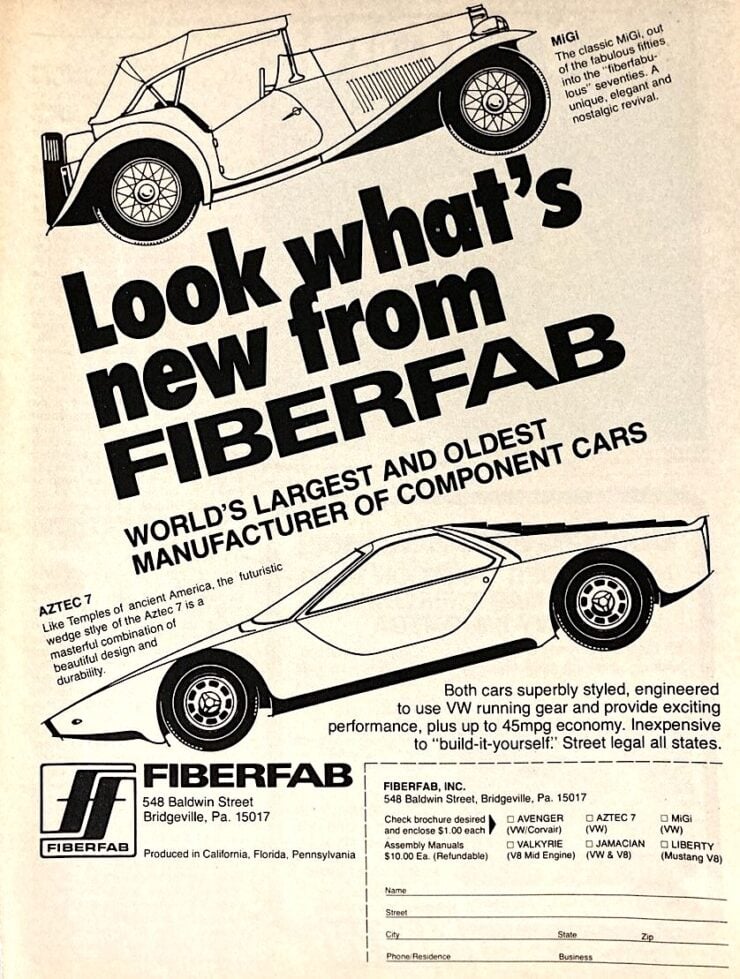


Many of the company’s designs, particularly the Valkyrie and Aztec 7, have become cult favorites, representing an era when home-made kit cars were being built in garages across the nation (and around the world) – a trend that continues to the modern day.
The Fiberfab Aztec 7
The Fiberfab Aztec 7 was introduced in the late 1960s as a more extreme evolution of the earlier Aztec GT, as noted higher up it drew its design inspiration directly from the 1968 Alfa Romeo Carabo concept from Bertone.
Unlike the GT’s relatively conservative lines, the Aztec 7 had a low, angular wedge-shaped body with prominent rear buttresses and razor-sharp aesthetics, designed to mimic the futuristic supercar-look that was gaining in popularity in Europe at the time.
Fiberfab marketed the car as a striking exotic alternative that could be built affordably at home using a Beetle chassis and drivetrain.
As with most of Fiberfab’s offerings, the Aztec 7 was sold as a fiberglass body shell intended for mounting to a standard Type 1 VW floorpan. This kept costs low and made the build accessible to a wide range of enthusiasts, the kit only required time and a whole lot of perseverance to complete.
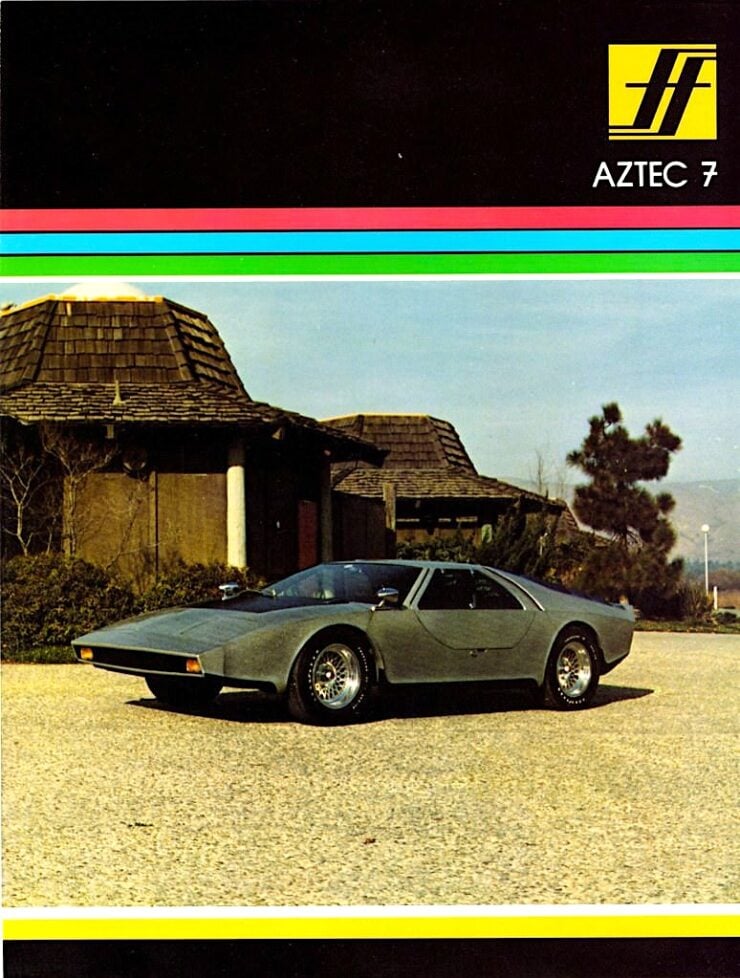


The gullwing doors were among its most memorable design cues, although their execution varied between builds and quality of fit and finish could vary widely (to say the least). Visibility out of the cabin was limited due to the raked windshield and low roofline, but the overall appearance made it one of the most visually ambitious kit cars of its time.
While the styling suggested high performance, most Aztec 7s were powered by stock air-cooled VW flat-fours, which delivered a modest output if we’re being generous. Some builders opted for more powerful Corvair flat-six engines or custom chassis setups, but these were relatively rare exceptions.
As a result, the car’s performance very rarely matched its aggressive appearance – unless significant mechanical upgrades had been made.
Interior finish depended entirely on the builder. Some completed cars were fitted with aftermarket gauges, custom upholstery, and soundproofing, while others remained bare and rudimentary with visible fiberglass still on show.
The low-slung design limited the car’s practicality, and getting in and out was a challenge for taller drivers, or for people with bad backs or otherwise limited mobility.
Despite its limitations, the Aztec 7 developed a following among kit car enthusiasts who had fallen in love with its futuristic styling. It remains one of Fiberfab’s most distinctive models and is frequently cited as a prime example of American kit car design in the 1970s.
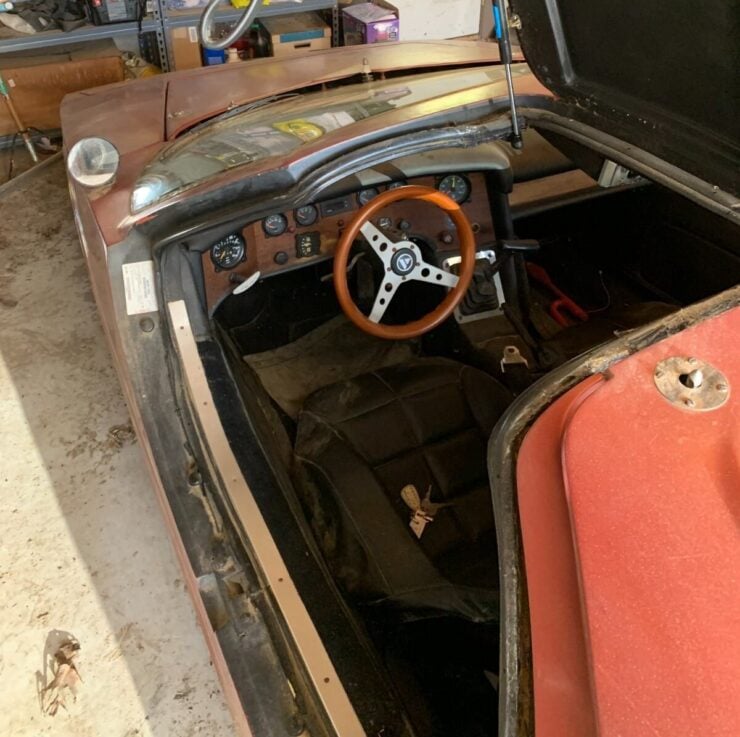


It’s believed that approximately 400 body kits were sold in total, however it’s believed that fewer than half of them were built into completed cars. How many remained unused, or how many have survived to the modern day is unknown.
The Fiberfab Aztec 7 Shown Here
The car you see here is an original Fiberfab Aztec 7 that has been sitting in a garage in Indiana, Pennsylvania for at least the last 20 years.
It’s built on a VW Beetle, as you would expect for an Aztec 7. The eBay listing notes that it’s a 1969 Beetle powered by the 1.6 liter flat-four making 46 – 60 bhp depending on the version – or more if it’s been modified for better performance.
The car rides on American Racing wheels and it has a Hurst Indy shifter, Kenwood speakers, keyless entry and door poppers, and perhaps most surprisingly, it also has backup sensors. The listing says that the car was given a major rebuild in 2002 which included a new carburetor, fuel pump, and more.
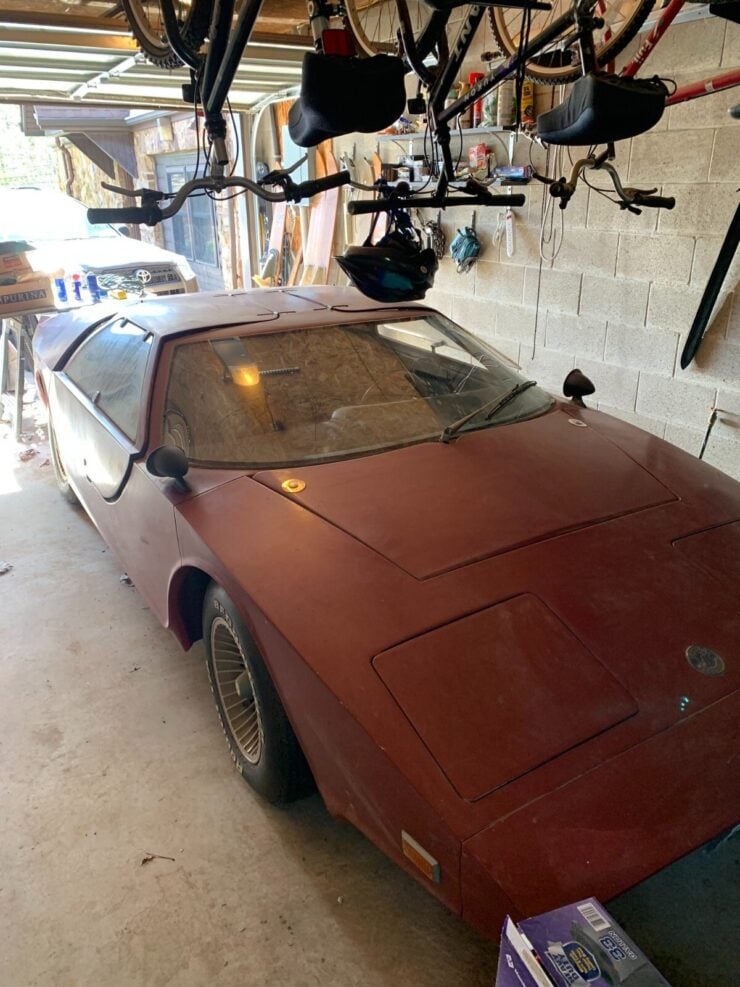


At some point it was also equipped with aircraft gauges and a drag racing chute handle in the dashboard which is said to have been added by aircraft enthusiast former owner. It comes with Volkswagen and Fiberfab Aztec 7 manuals and paperwork.
If you’d like to read more about the car or make an offer you can visit the listing here on eBay – it comes with a clear California title.
Images courtesy of Thibsman


